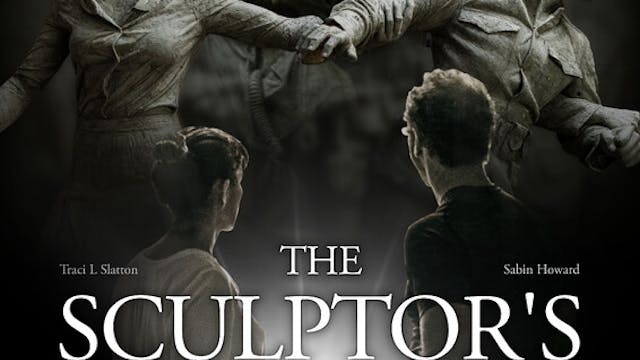SCRAPS short film, audience reactions (interview)
FESTIVAL AUDIENCE FEEDBACK VIDEOS
•
9m 56s
SCRAPS, 37min., Iraq
Directed by Aaron Joshua Weintraub
Mosul is still haunted by ISIS. The city’s recent past has created an uncertain future, and perhaps nothing displays the city’s instability more accurately than its spike in child labor. Razzan, Hameed and Maher are three boys from Harmat, a neighborhood whose past ISIS -affiliation has created a pariah community.
Get to know the filmmaker:
1. What motivated you to make this film?
I have been interested in child labor for a while. I think I first really became interested in the nature of child labor in the region when I was working in Jordan. I was stuck in Amman during COVID and during that time there was a huge spike in kids dropping out of school to help their families out and not returning. When I approached Sangar, who served as a fixer and co-producer for this piece, he immediately pointed to Mosul, his hometown, as a city that had seen an enormous wave of kids working instead of going to school. From there, it was about research and finding the right kids in an area that hadn't really gotten much attention.
2. From the idea to the finished product, how long did it take for you to make this film?
Well the idea was floating around for months before, then we had weeks of visiting different places and meeting different kids and families. You can't just pick up a camera and go for a long form story, you really have to come and go over and over until the journey to the place you're going to just feels like a habit.
We shot for 3 days with a full 4-person team, then a fourth day with just me and Sangar getting some additional areas we knew would be important. Then for the next couple of months it was just me editing, going to people for advice, going back to editing, cutting, doubting, sweating, and just burying myself in the story until finally I had the structure I wanted. That's my favorite part of the process.
3. How would you describe your film in two words!?
Fucked up.
4. What was the biggest obstacle you faced in completing this film?
Without a doubt it was figuring out how to capture these kids in their everyday life in a way that wouldn't be too invasive and wouldn't traumatize them or make them feel alien in their own community. We worked insanely hard before filming, coming and going to the Harmat area for weeks before to build up trust with the families there, the junkyard guys, and get to know the kids, there were so many interesting ones that you'll never see. Getting permission from parents and guardians was very important to us before bringing cameras into the situation. We approached so many different kids and families in different areas about filming before settling on Razzan in Harmat. We spoke with other families in the neighborhood too before and they held a tribal meeting to discuss us poking around, so we really did have the clearance and consent from the community leaders, which is always vital for a story like this.
Hameed and Maher joined along on our first day of filming and there wasn't much we could do about it. As we talked to them more, we realized what important characters they were too, and thank god we got permission from their mothers, who both declined to be filmed. Of the three kids, Maher's interview is my favorite. He has a really deep anger but also impressive self-awareness and wisdom about who he is. His quote at the end left us with our jaws on the floor while we were filming the interview in his house, we were looking around at each other while he was talking like, "Jesus Christ, how old is this kid again?!"
All in all they're rough kids, but they're really brilliant and funny and the community was incredibly open to us coming in. It's a shame there isn't more serious coverage of Harmat from journalists but maybe with this doc and some other pieces that can change.
5. What were your initial reactions when watching the audience talking about your film in the feedback video?
Very charming to see people appreciate our hard work. Lots of comments on the color grading, that was done by Rekawt Khaled, who served as our primary cameraperson as well during production. We wanted the greys to really come through so you could see the dirt on the kids' hands and faces. We also saw the beige and greys of Mosul as an excellent color palette as we were filming, and really felt it matched the tone of the piece in a disturbing kind of way.
6. When did you realize that you wanted to make films?
I'm not sure there was a moment of realization, I just have naturally gravitated towards it over my life. I do remember realizing in college how much I loved Arabic studies and Arabic culture and having a moment of understanding that I could really take that and combine it with my journalism major and that would make for a very fascinating life. But I really didn't pick up a camera seriously until after I graduated, I always thought I was going to be a writer. So if you're dead set on becoming something at the age of 21, just remember that the world might have other plans for you and that's ok.
7. What film have you seen the most in your life?
God, I should list some prestigious documentaries like Icarus or Hoop Dreams or something but to be honest there hasn't been a year that's gone by since I was about 6 or 7 that I haven't devoured the Lord of the Rings trilogy on some quiet weekend. Love those movies, can't tell which one's my favorite of the three, it depends on the mood.
8. What other elements of the festival experience can we and other festivals implement to satisfy you and help you further your filmmaking career?
More Film Freeway promo offers please and thank you.
9. You submitted to the festival via FilmFreeway. How has your experiences been working on the festival platform site?
Riveting.
10. What is your favorite meal?
I'm from Texas and therefore contractually obligated to tell you something like tacos or ribs. Not sure, depends on the day. Indian anything is good too. I guess the main takeaway here is it just needs to be *spicy.*
11. What is next for you? A new film?
Yep.
Up Next in FESTIVAL AUDIENCE FEEDBACK VIDEOS
-
THE SCULPTOR'S WIFE short film, audie...
THE SCULPTOR'S WIFE: A LOVE STORY IN DOCUMENTATION, 25min., USA
Directed by Traci L Slatton
On September 13th, 2024, in the heart of Washington, DC—Pershing Square—a colossal tribute in classic sculpture will be revealed. The National World War I Memorial honors the courageous souls who sacrifice... -
THE ATL WATERBOYS short film review
THE ATL WATERBOYS, 12min., USA
Directed by Antoinetta Hairston-Stallings
ATL WATER BOYZ is a short documentary that examines the recent uprise of young, black males selling water on the streets of Atlanta as a means of survival. We will take a journalistic yet cinematic approach to uncover the ps... -
HAKKI RISING short film review (inter...
HAKKI RISING, 30min,. USA
Directed by David Larson
An immigrant from Turkey comes to America seeking a better life and after struggling through homelessness, finds success in the world of acrobatic pizza tossing.Get to know the filmmaker:
1. What motivated you to make this film?
I love tellin...


